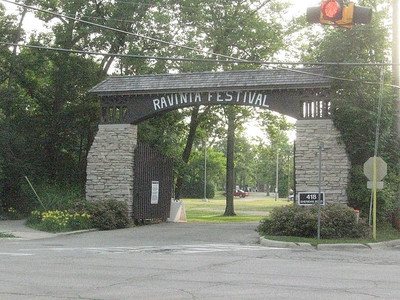Doctor Drain Services in Ravinia
-
Power Rodding
-
Hydro Jetting
-
Video Inspection
-
Drain Repair
-
Drain Cleaning
-
Sewer Cleaning
-
Sump pump
-
Sewage Ejector Pump
-
Main Line Rodding
-
Bathtub Drain
-
Bathroom Sinks
-
Kitchen Drain
-
Laundry Drain
-
Toilets
-
Floor Drain
-
Storm Drain

Ravinia Festival is an outdoor music venue in Highland Park, Illinois. It hosts a series of outdoor concerts and performances every summer from June to September. The first orchestra to perform at Ravinia Festival was the New York Philharmonic under Walter Damrosch on June 17, 1905, with the Chicago Tribune praising its "musical entertainment so satisfying in quality and so delightful in environment." It has been the summer home of the Chicago Symphony Orchestra (CSO) since 1936. Located in the Ravinia neighborhood, the venue operates on the grounds of the 36-acre (15 ha) Ravinia Park, with a variety of outdoor and indoor performing arts facilities, including the architectural prairie style Martin Theater. The Ravinia Festival attracts about 600,000 listeners to some 120 to 150 events that span all genres from classical music to jazz to music theater over each three-month summer season.
The Ravinia neighborhood, once an incorporated village before annexation in 1899, is actively maintained by the Ravinia Neighbors Association, who work to enhance and preserve Ravinia's architecture, history, and environment. The business district on Roger Williams Ave., within walking distance from the Ravinia Festival grounds, includes neighborhood service businesses and restaurants. Ravinia takes its name from the numerous steep-sided ravines that slice the shoreline near Lake Michigan.
In 1904, the A.C. Frost Company created Ravinia as an amusement park intended to lure riders to the fledgling Chicago and Milwaukee Electric Railroad. The amusement park had a baseball diamond, electric fountain and refectory or casino building with dining rooms and a dance floor. The prairie-style Martin Theatre (then called Ravinia Theatre) is the only building on the grounds that dates back to that original construction. When the park's existence became jeopardized following the railroad's bankruptcy, local residents (for the most part Chicago businessmen) formed a corporation in 1911 to purchase and operate the park. Music was a confirmed summer activity from then on, except for a brief hiatus during the Great Depression and the COVID-19 pandemic.

